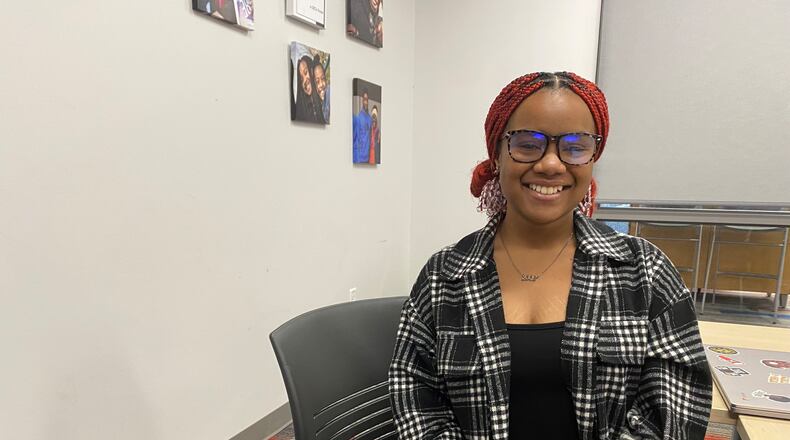Bria Wilder
Wilder, a DECA senior, hopes to pursue a career in law. For a long time, Wilder thought she wanted to be a lawyer. But when she found out about what a paralegal does, she said she gravitated towards that career.
“I just feel like, once I started reading about what a paralegal does, it just seemed more like Bria to me,” Wilder said.
Wilder is an example of a student who seeks further education to pursue a certain career goal but has chosen a two-year degree because that fits best. But she said the cost is also a factor in picking the two-year degree.
“I don’t want to graduate from college and then I have all these student loans,” she said.
The percentage of people who have an associate degree in the U.S. is rising, from 9.5% in 2011 to 10.5% in 2021, according to the U.S. Census Bureau. Getting an associates degree is still less popular than getting a bachelor’s degree, but the state has been pushing certificates and shorter community college programs as a way to get people into skilled jobs.
Brooklyn Hinely
Hinely, a senior at Fairmont High School, plans to go through an 18-month paramedic course at Sinclair Community College after graduating with her firefighting course completed at the same time she finishes high school.
Hinely said she knew she wanted to go into firefighting at a young age. Several members of her family are firefighters, and after hearing their stories, it seemed like a good fit for her, too.
At one point, she considered going to college and getting a degree in sociology or criminal justice. But once she decided on firefighting, getting a degree didn’t matter as much as getting the correct license in Ohio.
“(In) firefighting, it’s not the money that pays off,” she said. “It’s more of the community you build and the family you build and that’s what makes the money worth it, is finding that place.”
More from this project:
- College Bound? Some students drawn to well-paying trades, avoiding college debt
About the Author



